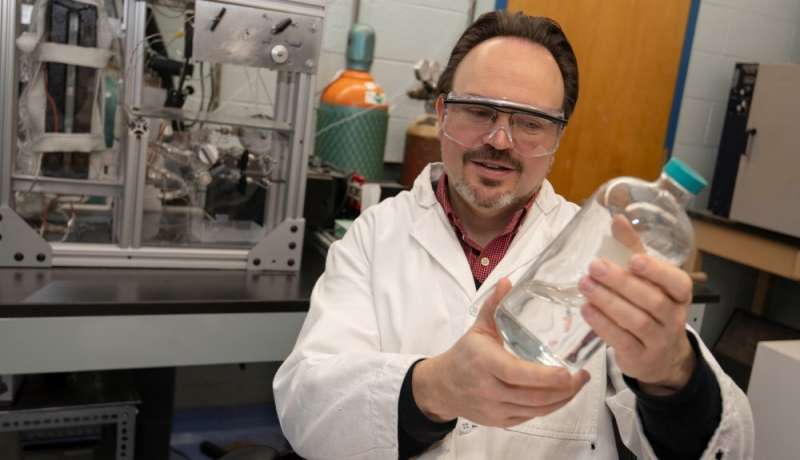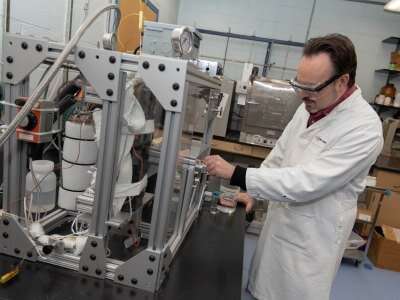An exotic microbe and an unusual extraction process may add up to an economical way to make a promising biofuel

Taking a step closer to a "green" replacement for fossil fuels, a research team that includes a chemical engineer at Worcester Polytechnic Institute (WPI) has developed a novel process using an unusual solvent and an exotic microorganism that may make it possible to manufacture isobutanol and other biofuels more economically.
Isobutanol, like ethanol, is an alcohol, but its lower water solubility (which reduces the risk of corrosion associated with many biofuels) and higner energy density (which translates to increased miles per gallon), have created considerable interest the compound's potential use as a gasoline additive and even a gasoline replacement. But manufacturing isobutanol, which is typically produced using biotechnology, has proven difficult and costly.
"With the growing threat of climate change and our dependence on fossil fuels and petroleum-producing countries, there is increasing interest in using isobutanol as a gasoline additive in place of ethanol, which can significantly lower a vehicle's fuel efficiency," said Michael Timko, associate professor of chemical engineering at WPI. "But we haven't found an environmentally friendly, efficient, or inexpensive way to produce it."
In a paper published recently in Nature Communications ("Engineered Microbial Biofuel Production and Recovery Under Supercritical Carbon Dioxide"), Timko and colleagues describe a novel method for producing and extracting isobutanol that uses supercritical carbon dioxide as a solvent and a bacterium that can thrive in this harsh, antimicrobial liquid. The team genetically engineered the bacterium, which was isolated from a naturally occurring reservoir of high-pressure carbon dioxide, by adding genes for the production of isobutanol. They then showed how supercritical carbon dioxide could overcome two important problems that plague conventional biofuel production methods: low yields and bacterial contamination.

Timko, who received a National Science Foundation CAREER Award in 2016 for his work with biofuels, analyzed the process and showed that the biofuel could be made using five times less energy compared to traditional manufacturing processes, making it less expensive, more efficient and more environmentally friendly.
"We've done the calculations to prove that this process works and it works well," he said. "We had an intuition that this would work but the question was if it would be energy efficient. Turns out, it is. The art of the research has been creating the extraction technique. Virtually every way to separate mixtures had previously been tried on isobutanol, but we came up with the right process."
More information: Jason T. Boock et al. Engineered microbial biofuel production and recovery under supercritical carbon dioxide, Nature Communications (2019). DOI: 10.1038/s41467-019-08486-6
Journal information: Nature Communications
Provided by Worcester Polytechnic Institute





















